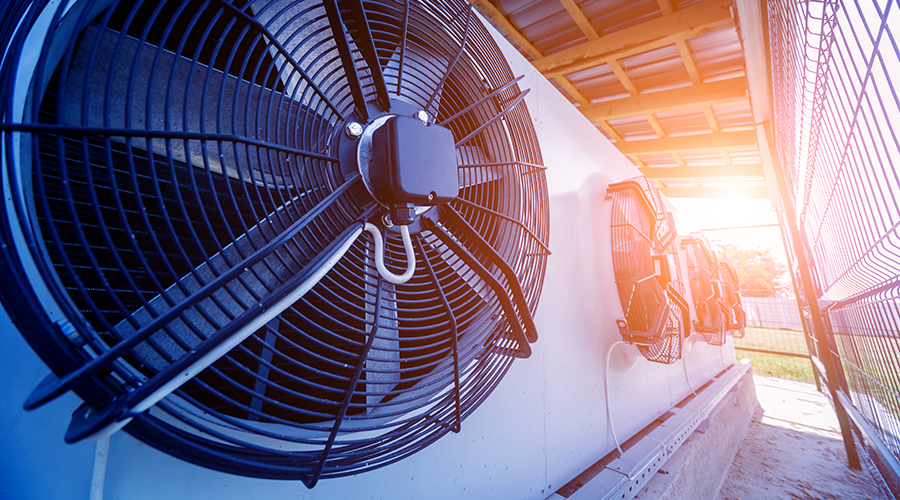
HVAC manufacturers join to discuss the roles HVAC systems play in IAQ and patients’ experiences.
HVAC plays a core role in healthcare facilities by heating and cooling the air within them. However, these systems play a part in other aspects of healthcare facilities too. These aspects are subtler than air temperature, though they are still key to a positive experience. In this manufacturer roundtable, Healthcare Facilities Today speaks with HVAC manufacturers on the roles HVAC systems play in both indoor air quality and the patient experience.
How do HVAC systems impact the indoor air quality (IAQ) of healthcare facilities?
“One major role is the delivery of clean air to the occupied spaces. Improving IAQ is often associated with increasing the supply of clean air to building occupants. However, improved IAQ doesn’t always directly improve with increased ventilation. Simply increasing the supply of clean air can have a negative impact on IAQ by inadvertently reducing relative humidity.
It can also affect airflow patterns within the rooms which can often result in dissatisfactory thermal comfort. The system needs to be holistically designed to address all the factors that have an impact on IAQ/IEQ.”
—Matthew McLaurin, segment manager of healthcare, laboratories and cleanrooms air distribution, Greenheck
“Healthcare facilities have always had a greater emphasis and need for consistent and quantifiable air quality. An outgrowth of the COVID-19 pandemic was to place an even greater focus on the role of HVAC systems in the air quality equation. In fact, organizations such as ASHRAE and the CDC have stringent guidelines/standards specifically related to HVAC systems and indoor air quality. The individual space function will principally dictate what type of integrated HVAC system is necessary to comply with the required air quality.
Design parameters such as number of Air Changes per Hour (ACH, make up (outside air) ACH, pressure relationship to adjacent areas (negative or positive) and filter efficiencies are common factors used to achieve regulatory requirements. There is great emphasis on control of airborne infection through expelling, dilution and sterilizing of airborne contaminants. There are many products on the market to choose from, allowing system design engineers and facility operators the opportunity to meet their unique facility air quality needs at the HVAC system level.”
—Michael Daly, chief technology officer, ECM Technologies
“Because VRF compressors never stop and constantly circulate indoor air across the equipment’s air filtration components and coil, more air is filtered and conditioned and more dust, allergens and humidity are removed than in conventional on/off systems.”
—Randall Towb, senior manager of business development – senior living, Mitsubishi Electric Trane HVAC US
What role do HVAC systems play in patient comfort and recovery?
“HVAC systems, specifically air distribution, have a direct impact on the thermal comfort of occupants. In healthcare facilities, the more comfortable a patient is during their stay can have a significant impact. Studies have linked thermal comfort to pre and postoperative stress and anxiety, as well as their sense of well-being. This leads to enhanced recovery processes and reductions in the length of stay.”
—Matthew McLaurin, segment manager of healthcare, laboratories and cleanrooms air distribution, Greenheck
“Maintaining consistent temperatures and humidity levels are essential elements in promoting patient comfort and recovery. It has been demonstrated that patients in well-controlled environments generally show more rapid physical improvement than those in poorly controlled environments. HVAC systems play a vital role in controlling transmission of airborne infection. In many cases, proper air conditioning is viewed as an important factor in patient therapy.”
—Michael Daly, chief technology officer, ECM Technologies
“In addition to the constant air filtration mentioned above, a VRF heat pump compressor has another benefit for patient comfort and recovery. It operates at much lower noise levels than conventional on/off compressors. This allows heat pumps to cool or heat the resident or patient room at whisper quiet operation, allowing for better rest and fewer disturbances for recovery sleep.”
—Randall Towb, senior manager of business development – senior living, Mitsubishi Electric Trane HVAC US
Jeff Wardon, Jr. is the assistant editor for the facilities market.
The post "How HVAC Systems Affect Indoor Air Quality and Patient Experience" appeared first on Healthcare Facilities Today








0 Comments